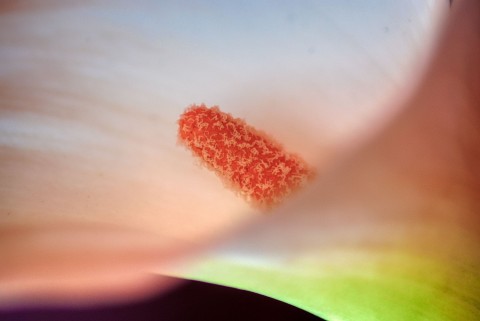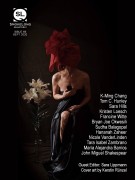In nightmares, I arrive too late.
Abuela dies and I hop on a plane, too late to say goodbye, too late to hold her hand, too late to hear her last words. Too late, as always, for everything. So, of course, this comes true. I book a flight and I tell my boyfriend, not to come—really, no, it’s okay—and I call Mamá, and she doesn’t pick up, and I stay in my childhood home that smells like comejen and the hair lacquer abuela would use to hold her low silver bun and I curl up, and sob, and cry—cry harder—and hate myself and I call Mamá again, and of course, she doesn’t pick up. And then voicemail, voicemail, and more voicemail because who picks up the phone for a mala hija, for the prodigal granddaughter that isn’t paying enough attention to come back at the right time?
At the funeral everyone tells me how sorry they are. “She raised you.” They say, “Your Abuela. A saint.”
The neighbors swarm in a big dark mass trussed in luto reeking of sweet imported cologne. They want to know about my life in the States and about the boyfriend and our apartment. Do you think about kids? Are the winters as cold as they say? Have you visited the Statue of Liberty? Your abuela always wanted to live to see her grandchildren. I’m sure she and Diosito are watching over you. I’m sure she’ll watch over them. I touch my stomach, as if they can see something that I can’t.
Mamá didn’t even call me much in Abuela’s last days. I wonder if she expected me to guess, to sense that the tumors had gotten too much for her chest to handle, and fly over but I didn’t. I was always too busy. Even when we lived in the same country, we never had anything to say to each other. All I remember from childhood is this guy or that guy with the big arms or American candy, the one rumbling off in a yellow jeep.
I see her when we’re all walking to the grave site for the ceremony, draped in black, eyes covered in gray shades, and I want to wave. Make myself big. Mamá. Mamá. Here. I’m waving, I’m calling, I’m here. But she doesn’t look. She hides in others; she cries and turns her head. She touches the ground, threatening to throw herself onto the grave. Mami. Mami. Don’t leave. Mami. Take me with you.
“Mami?”
I touch her shoulder. She flicks away my hand as if I am a fly.
“Mami,” I try. Mami. Her eyes study the dirt.
Mami. I say, and now Mami abruptly stands. She puts her hand on her face. Mami: that word that Abuela said was too big for her daughter. She could never be a mother. I have no memories of her putting me to bed, or of her reading me a story, or of her helping me with math or even playing outside with me. I would always play alone, at home, where Abuela’s veiny legs wouldn’t have to walk too far to fetch me. I stand behind her and I see her wild hair that spreads on the wind like biblical snakes, I take a breath and I imagine her telling me she’s sorry. I see her stretching her arms so I can put my head to her chest and close my eyes and disappear.
But she never turns back. Her eyes are fixated on the priest.
I put my arms behind her, hold on to her tight, and squeeze until I’m strong enough to lift her up. She gives in, airless.
“Mami,” I whisper but her body goes rigid.
“You couldn’t wear something longer for your Abuela’s funeral?” she says as she brushes the dirt off her long skirt.
I look at my bare knees. When I was a teenager, Abuela would scold me and Mamá for going around in mini skirts. We would catch a cold. No one would take us seriously. Mamá and I would look at each other and smile, kiss her on the cheek and tell her that we were grown now, we could fight someone if we had to.
“I don’t own anything longer,” I tell her under my breath as our neighbors throw flowers on the coffin. After flowers, more dirt until Abuela is covered. My feet start tapping. I want to go and I want to stay. I reach for Mami’s hand and when she turns to me, I see the wind whipping the fabric free from her legs.


